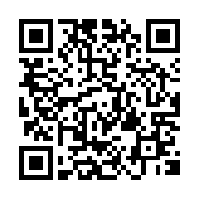Eucharistic Living
|
Body & Blood (especially Year A)
Readings
Focus: Conclusion / Eucharistic Living
This week can serve as a conclusion, wrapping up the topic.
The story of manna in the desert is referenced in the First Reading and the Gospel, and has key lessons for Eucharistic living (in a very similar way to the Feeding of the Multitudes stories explored on the public page). In the Second Reading, Paul emphasizes that we are "one body." What does it mean to live out being one body in Christ?
Eucharistic living requires us to let go (sacrifice), connect with others, and receive. For each of us, some of these steps may be easy and some harder.
Letting Go
Read the articles on the public page for more guidance.
Readings
- Reading 1: Remembering manna
- Reading 2: "Because the loaf of bread is one, we, though many, are one body"
- Gospel: "I am the living bread;" eternal life
Focus: Conclusion / Eucharistic Living
This week can serve as a conclusion, wrapping up the topic.
- The Sacrament of the Eucharist is connected to how Jesus shared meals throughout his life.
- What Jesus taught us about One Table should affect how we act both within the church and outside the church.
The story of manna in the desert is referenced in the First Reading and the Gospel, and has key lessons for Eucharistic living (in a very similar way to the Feeding of the Multitudes stories explored on the public page). In the Second Reading, Paul emphasizes that we are "one body." What does it mean to live out being one body in Christ?
Eucharistic living requires us to let go (sacrifice), connect with others, and receive. For each of us, some of these steps may be easy and some harder.
Letting Go
- Jesus ultimately sacrificed himself for us, and we are called to do the same. As Christians, we enter into the Paschal Mystery again and again, dying to ourselves and practicing the art of self-giving love.
- There are many things we may need to let go of or sacrifice to embrace the One Table: self interests, privacy, money, pride, hoarding, self-sufficiency.
- In the manna story, the people gathered just enough to meet their needs ("daily bread"). What if the whole world was gathered around One Table? Would we eat seconds, thirds, nineteenths before someone else at the table had their first serving?
- Eucharistic living is about living with and for others, not just ourselves or our own families. One Body is beyond ourselves.
- This is more than advocating for others or giving to others. It's about actually getting to know others. Jesus could have just healed, forgiven, or taught, but he chose to continually eat with people.
- We need to receive from both God and others. What may be hardest for many of us is giving up the belief that we can provide our own security.
- Some of us are very reluctant to receive, because we are afraid of taking on an obligation. But accepting a gift or favor brings us closer together. The same is true with out relationship with God.
Read the articles on the public page for more guidance.
Handouts / Inserts
Single Page
|
Your browser does not support viewing this document. Click here to download the document.
|
The PDF file is the best quality and smaller file size. Use it for printing or emailing:
The JPG file can be used to paste it directly in another file, such as for your parish bulletin:
| ||||||||||||
QR Code
|
This image can be used by people with mobile devices to send them directly to the public web page for this week.
| |||||||

